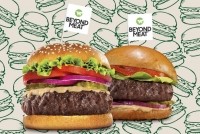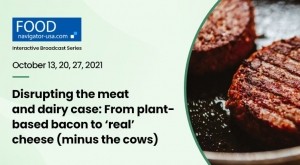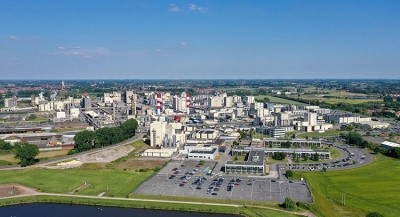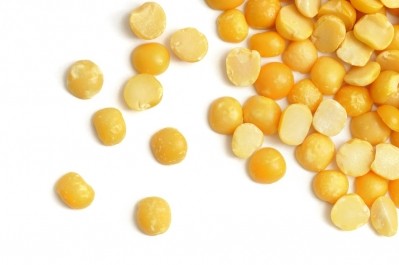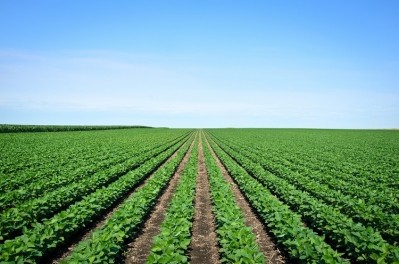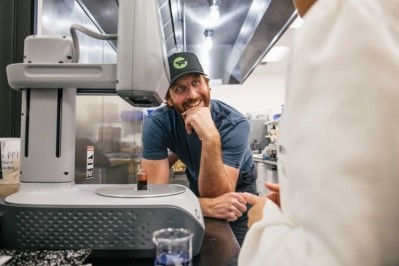‘A transformational event in our history…’ Roquette unveils ‘world’s largest pea protein plant’
This content item was originally published on www.foodnavigator-usa.com, a William Reed online publication.
While pea protein still lags behind soy, capacity has been expanding rapidly over the past couple of years, with PURIS recently opening a large plant in Dawson, Minnesota, Ingredion recently opening a facility in Nebraska; ADM building a plant in North Dakota; Cosucra building a new plant in Denmark and expanding production in Belgium; and several Chinese manufacturers expanding capacity.
Roquette's new 200,000-square-foot-plant – powered by hydroelectric power - has the capacity to process 125,000 tons of yellow peas per year, sourced from local producers, and makes pea protein isolates with 85%+ purity, said CEO Pierre Courduroux, who said the opening was “a transformational event in our history and a boost to the global plant-based food sector.”
In a star-studded virtual ceremony hosted by astronaut Chris Hadfield (who entertained viewers with a rendition of David Bowie’s Space Oddity on his guitar) featuring a guest appearance from prime minister Justin Trudeau, Beyond Meat CEO Ethan Brown said Roquette had been a critical partner to Beyond Meat over many years.
“At Beyond Meat we always talk about three things. Let's get the taste to be indistinguishable from animal protein, let's get the health message across to consumers, and let's drop the price below that of animal protein over time. All three of those things are doable, and they're doable through partnerships like the one we enjoy with Roquette."
He added: “We use 93% less land to produce the same amount of burgers than you would use if you ran those crops through an animal. So we have the opportunity to bring great efficiency to agriculture and help farmers make more money, as well as free up land to be stewards of the climate.”
There are multiple applications for pea protein, which is gaining traction in everything from plant-based beef, pork, seafood, and chicken products (Beyond Burgers, Lightlife's new chicken products, Nestle's 'Vrimp' shrimp alternative); to egg alternatives; plant-based dairy (Ripple, NotMilk, Sproud, Danone's new Greek-style plant-based yogurts); plant-based protein smoothies and shakes (EVOLVE, Koia); sports nutrition products and protein powders (Vega, Orgain); and plant-based protein bars and snacks (No Cow and SimplyProtein).
Image credit: Beyond Meat
Valorizing all parts of the pea
In a press conference following the virtual opening ceremony, Jeremy Burks, SVP plant proteins at Roquette, said the company sought to valorize all the key components of peas processed at the plant, adding: “What we try to do is end up with no waste, so really, we use everything that comes out of the pea.
“The starch is very important… and there are quite a lot of different applications. In fact pea starch is really rather unique in that it has this tremendous film forming capability, which makes it good for applications like the adhesives used in cardboard manufacture as well as food applications, and we continue to work on that.”
Asked if the plant will handle other pulses beyond peas, he said peas would “keep us pretty busy in the short term” although Roquette is looking at other plant protein sources down the road.
“The growth that we see for peas is pretty tremendous, and it looks like it's going to keep growing for some time in the future… What we do know is that when customers launch, they want to be confident that if their product takes off with the consumer, that they’ve got someone behind them that can help meet that surge in demand, and that's really our objective here.”
Asked about pea varieties, he said: “We have our own farm at Roquette and we grow different varieties of peas, looking at the performance under different conditions... We also made an investment in a breeding company called Equinom [an Israeli startup using non-GMO techniques to breed high-yielding pea varieties and other plants with higher protein content] a couple of years back…”
Roquette has also developed proteins with specific functional attributes such as higher (NUTRALYS S 85+) and lower sodium (NUTRALYS L85M) through processing adjustments, said the company: "Our commitment to this market is unprecedented with a huge investment program exceeding the original half a billion euros including equity investments, acquisitions, upgrades to our Vic-sur-Aisne plant in France and the new plant in Portage."
'This plant is really an engineering marvel'
Roquette did not comment on rising prices for pea protein and surging transportation costs, but Burks noted that building a plant in Manitoba – one of the biggest pea-growing regions in the world and close to its North American customer base – would cut food miles: “This is going to do a lot of good because it's going to shorten supply chains.”
While some of the protein could go to the pet food and animal feed markets, said Burks, “Our real focus is on the market for human nutrition.”
Dominique Baumann, managing director, Roquette Canada, added: “This plant is really an engineering marvel. To make this high purity protein, we are just using mechanical energy and water.”
Interested in plant-based meat, dairy, and seafood alternatives?
Checkout FoodNavigator-USA's FREE 'Disrupting the Meat and Dairy Case' 3-part series, which is now available on demand:
Where next for meat alternatives? From plant-based burgers to fungi-fueled bacon - featuring Kroger, Atlast Food Co, Nature's Fynd, Nowadays, Oterra, and Roquette
Where next for dairy alternatives? From oatmilk to ‘real’ cheese (minus the cows) - featuring Danone, NotCo, BioMilk, Change Foods, RSSL, and CP Kelco
Where next for seafood alternatives? From tuna to shrimp - featuring the Good Food Institute, Good Catch, Ocean Hugger, New Wave Foods, and Aqua Cultured Foods.
Find out more and REGISTER HERE to watch the event for FREE on demand.
